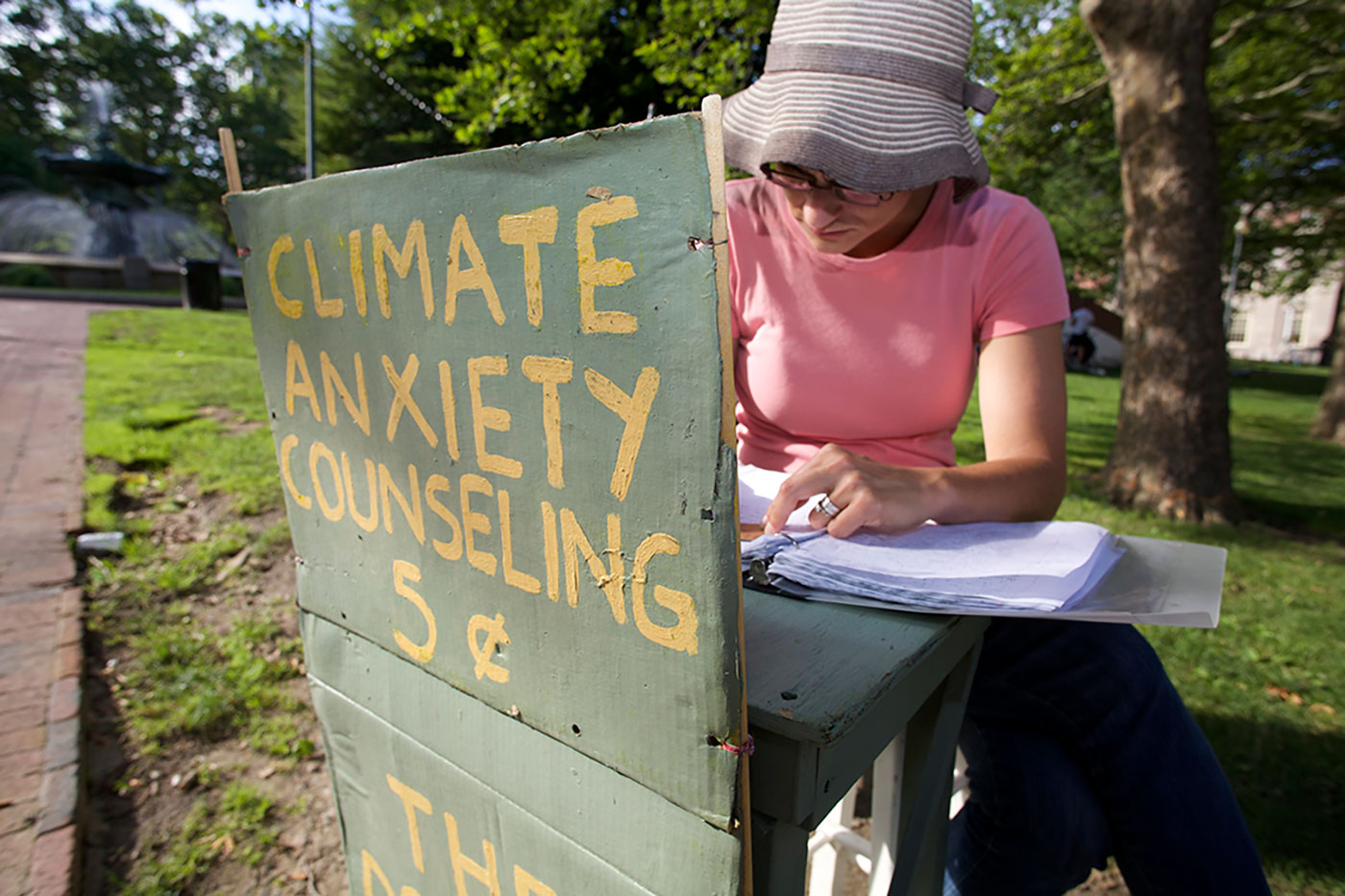Is climate anxiety a pressing problem, or a luxury?

This story is part of the Grist arts and culture series Moral Hazards, a weeklong exploration of the complex — sometimes contradictory — factors that drive our ethical decision-making in the age of global warming.
In May 2014, Kate Schapira carted a little table with a hand-painted sign out to a park near her home in Providence, Rhode Island, and started listening to strangers’ problems. The sign read “Climate Anxiety Counseling Booth,” referencing an emotion that was relatively unknown, or at least seldom named, at the time. As an English professor, she had no psychological training, no climate science background. She could not offer expertise, simply an ear and a venue for people to unload worries.
And people came, tentatively but earnestly, as she brought the table out roughly 30 times over the rest of the summer. Those who …